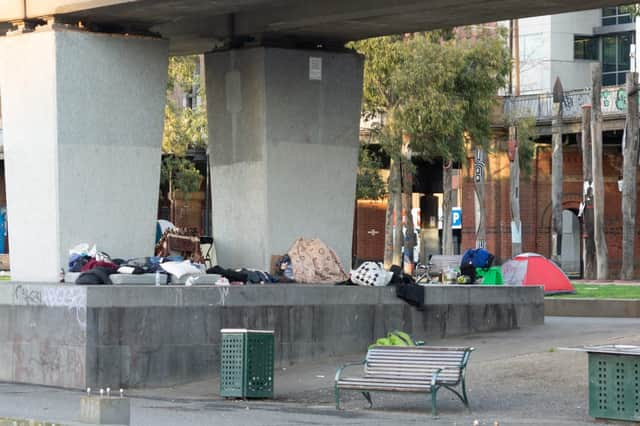Rough sleepers not eligible for government support should be housed during the pandemic - new ruling made by High Court judge


Rough sleepers in England who would usually be unable to obtain housing will be eligible for emergency accommodation during the coronavirus pandemic, a High Court judge has ruled.
Mr Justice Freedman concluded that councils do have powers to provide emergency accommodation to those with no recourse to public funds in the context of the national health emergency.
Advertisement
Hide AdAdvertisement
Hide AdThe decision was made after Brighton and Hove City Council refused to provide accommodation to failed asylum seeker, Timon Ncube, when he applied in September last year.
A High Court challenge was brought by Mr Ncube against the decision, with support from housing charity Shelter. By the time his case reached the court in December last year, the Zimbabwean national had been moved to Home Office accommodation in Swindon.
But the court went ahead with hearing the case, saying it raised issues of “public importance”.
The local authority argued it did not have the legal power to provide accommodation to Mr Ncube because he had no recourse to public funds.
‘Councils should not be leaving people on the streets’
Advertisement
Hide AdAdvertisement
Hide AdPreviously in the Covid pandemic, the ‘Everyone In’ policy, which began in March last year, saw people living on the streets (including those whose immigration status meant they were not entitled to state support) helped into accommodation.
In a statement following the ruling, Polly Neate, chief executive of Shelter, said: “Too many people’s lives have been put at risk sleeping rough because councils don’t think they meet the criteria for support.
“Our services have seen first-hand the cruel impact of ‘Everyone In’ not always meaning everyone.This judgment removes any doubt: councils should not be leaving people on the streets.
“As long as this emergency persists, the legal powers are there to protect everyone from the dangers of rough sleeping.”